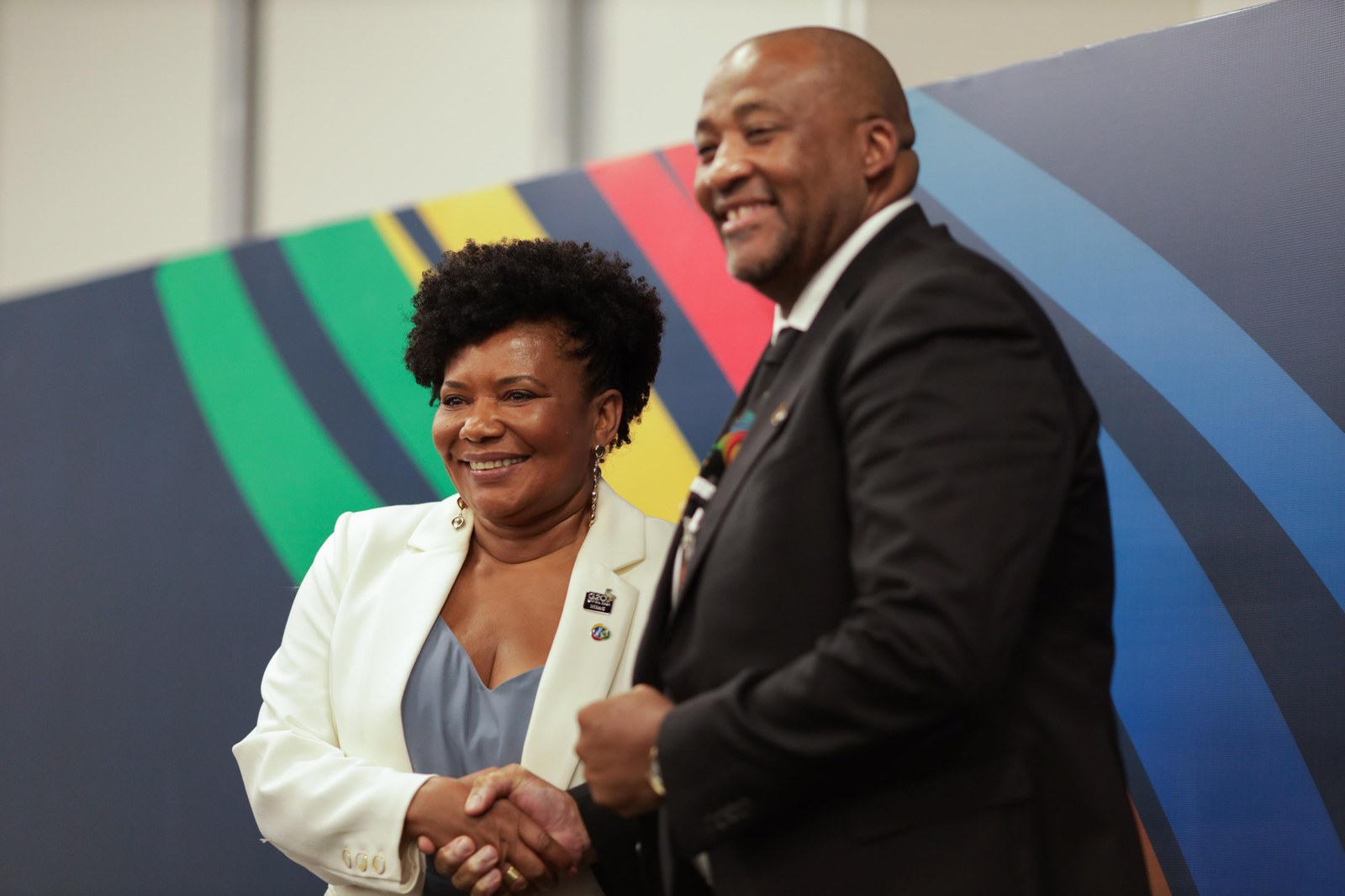The last G20 ministerial meeting closes with robust Declaration: Culture as a pillar for a new international paradigm
10 days before the G20 Leaders' Summit, the Culture Working Group celebrated a text that calls for action on cultural diversity and social inclusion; the digital environment and copyright; the creative economy, sustainable development, and preservation; as well as the safeguarding and promotion of cultural heritage and memory. The Declaration is unprecedented in linking culture and climate change.

"Something is out of order, out of the new world order," sang Brazilian musician Caetano Veloso, a winner of international awards such as the Grammy Award for Best Global Music Album. In the homeland of Caetano, Bahia—a northeastern state of Brazil—the G20 Culture Working Group (WG) celebrated its Ministerial Declaration in Salvador on Friday, November 8. The text emphasizes the significance of cultural rights established in the Universal Declaration of Human Rights and signals the commitment of the world's largest economies to a "new order" where culture is foundational to a fairer and more sustainable world, based on four pillars.
At the opening of the meeting, Brasil's Minister of Culture, Margareth Menezes, emphasized it as a unique opportunity to catalyze global efforts on the subject. "We are dealing with important actions to, together, through international cooperation, form a consensus on the paths we should follow. This progress is crucial, especially given that Culture's inclusion in G20 technical discussions is a relatively recent development. Through the power of its contribution, Culture has proven to be a genuine tool for promoting dialogue, showing the way to understanding and peace, and demonstrating how we can, through our diversity, create common development strategies," she said.
You can access the full Declaration in English here.
The WG was created during Saudi Arabia's presidency (2020) and has since met in Italy (2021), Indonesia (2022), India (2023), and now, in its fourth edition, in Brasil.
Axis 1 - Cultural diversity and social inclusion
"Today there is a party in the ghetto, you can come, you can arrive, mixing the whole world, let's see what happens. There are people of every color, people of every faith, Rock'n Roll guitars, Candomblé drumming" - Festa (Party), Ivete Sangalo
In addition to other elements, the thematic axis emphasizes the importance of a common and coordinated approach to strengthen the preservation and stimulation of cultural diversity and heritage in all its forms, as well as the foundation of intercultural dialogue as a strategy for peace and solidarity. The text also includes a commitment to promoting artistic and cultural education, as well as to identifying, documenting, preserving, and revitalizing languages as a means of transmitting living heritage and knowledge systems, in line with the International Decade of Indigenous Languages 2022–2032.
Axis 2 - Culture, digital environment, and copyright
"With how many gigabytes is a raft made, a boat that sails, that sails in this ‘infosea’, that takes advantage of the ‘infotide’ ebb, which carries an ‘oriki’ from my old orixa to the port of a diskette of a micro in Taipei." - Gilberto Gil, Pela Internet (Via the Internet)
Acknowledging that digital transformation has become a key driver for the growth of cultural and creative sectors, as well as the integration of artificial intelligence (AI) into cultural production, the WG stresses the importance of fair compensation for rights holders in the digital sphere. It also highlights the need for appropriate safeguards, such as transparency about AI models, and calls for ongoing international dialogue to ensure ethical, safe, inclusive, reliable, and transparent AI that respects intellectual property rights.
Axis 3 - Creative economy and sustainable development
"Look straight ahead, look to the side, look at the bush. Delicate nature, climate change, are you satisfied? We have to do something now" - Carlinhos Brown, Earth Mother Water.
The axis is based on the growing economic weight of creative cultural sectors and industries as important economic and social drivers, significant sources of decent job creation, and income that, among other things, stimulate sustainable production and consumption. The declaration also includes the demand for adequate access to comprehensive and sustainable social protection systems. This declaration is historic for the G20 Culture Group, as it recognizes the interconnection between the themes of culture and climate change.
Axis 4 - Preservation, safeguarding, and the promotion of cultural heritage and memory.
"Singing that the body transcends time and empowers us to resist. I left my headdress on the board, a spoken portrait, I write: ‘It's here’. In a historical erasure, they ask me how I got here," Território Ancestral (Ancestral Territory) - Kaê Guajajara
It highlights cultural heritage as a factor that enriches the collective experience of humanity. It also acknowledges that threats to cultural heritage and resources—such as the desecration of relics and sanctuaries, illicit excavations, falsification, and the misappropriation of cultural heritage and traditional knowledge of indigenous peoples—can lead to the loss of irreplaceable cultural assets and disrupt socio-cultural practices. In this sense, it also recognizes the value of the return and restitution of cultural goods to the countries and original communities, based on the consent of the interested parties. An example is the return of the Tupinambá Mantle to Brasil, after 335 years. The mantle was donated by the National Museum of Denmark.
The Declaration is the final ministerial declaration to be approved before the Leaders' Summit, which will take place in 10 days in Rio de Janeiro. It will serve as the main international event to promote the presidency of the Federative Republic of Brasil during this administration, with the participation of prominent international leaders and under the spotlight of global society and the press.
The Argentine Republic registered its dissent to the topics dealt with particularly in paragraphs 6 and 8 of the Ministerial Declaration.
Translated by PGET-UFSC